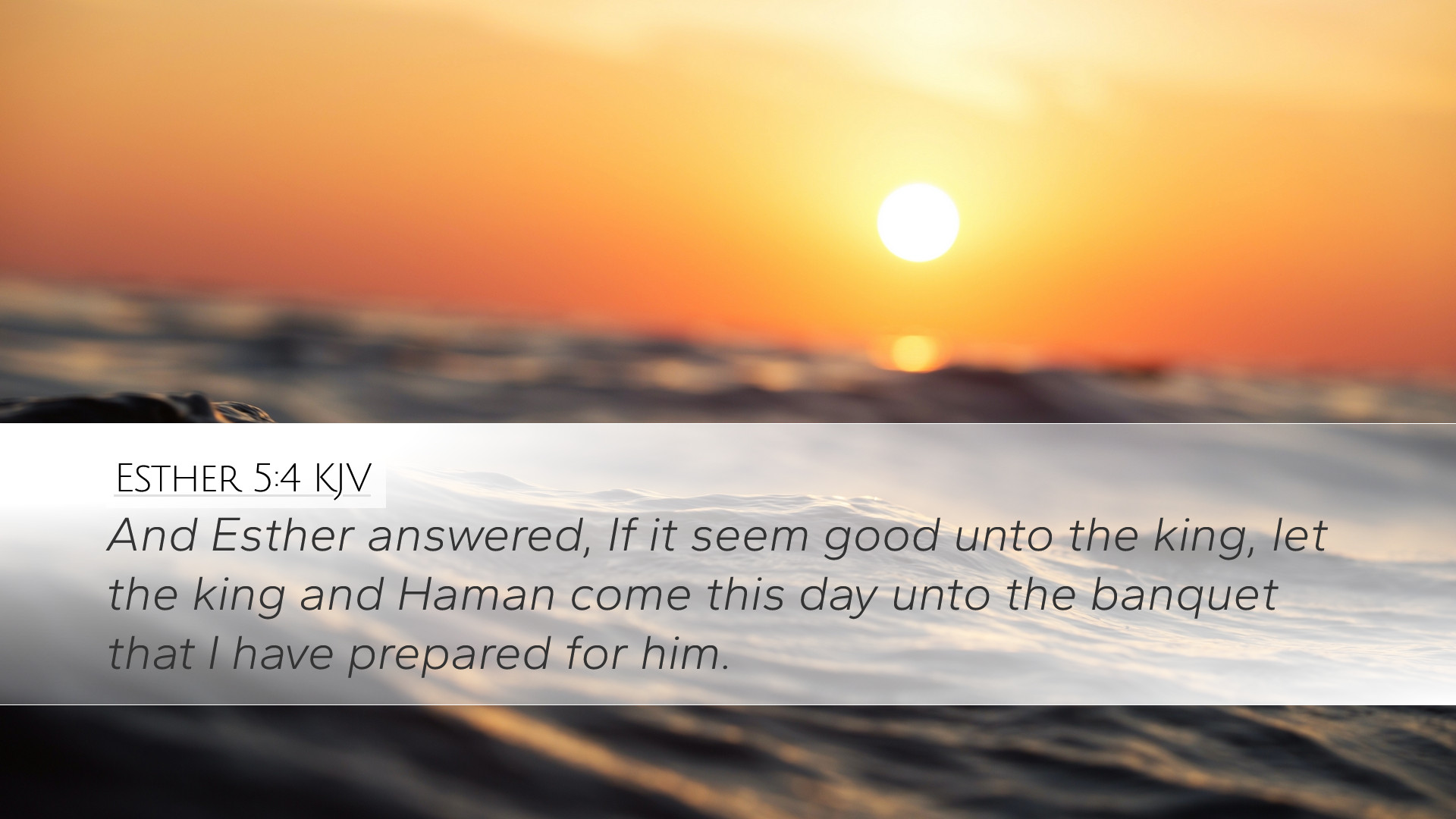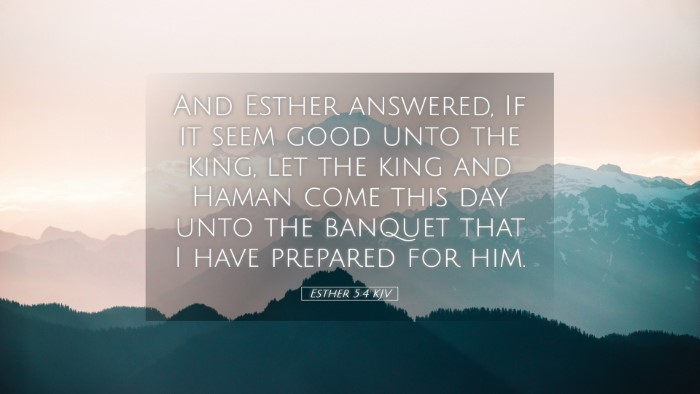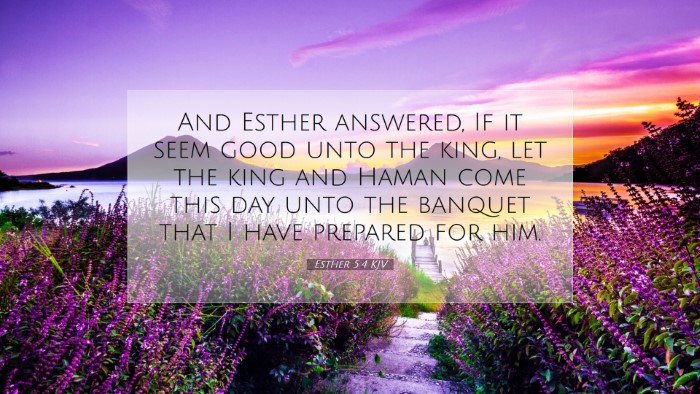Old Testament
Genesis Exodus Leviticus Numbers Deuteronomy Joshua Judges Ruth 1 Samuel 2 Samuel 1 Kings 2 Kings 1 Chronicles 2 Chronicles Ezra Nehemiah Esther Job Psalms Proverbs Ecclesiastes Song of Solomon Isaiah Jeremiah Lamentations Ezekiel Daniel Hosea Joel Amos Obadiah Jonah Micah Nahum Habakkuk Zephaniah Haggai Zechariah MalachiEsther 5:4
Esther 5:4 KJV
And Esther answered, If it seem good unto the king, let the king and Haman come this day unto the banquet that I have prepared for him.
Esther 5:4 Bible Commentary
Commentary on Esther 5:4
Verse Text: "And Esther answered, 'If it pleases the king, let the king and Haman come today to the banquet that I have prepared for him.'
Introduction
The context of Esther 5:4 is a pivotal moment in the narrative of the book of Esther. Here, we see Queen Esther's strategic approach as she seeks to intervene on behalf of her people, the Jews, who are facing extermination. This verse not only reflects Esther's courage but also showcases her wisdom in planning a banquet to win the favor of King Ahasuerus and Haman.
Examination of Key Themes
-
Esther's Courage and Initiative
Esther’s willingness to invite both the king and Haman to her banquet illustrates her growing boldness. Matthew Henry observes that Esther had been hesitant; however, her resolve signifies a transformation in her character as she steps into her role to save her people.
-
Diplomatic Wisdom
Adam Clarke notes the diplomatic strategy behind Esther’s invitation. By inviting Haman as well as the king, she tactfully places herself in a position of influence, aiming to turn the tables on the impending doom of her people.
-
The Role of Divine Providence
Albert Barnes emphasizes that Esther's actions can be seen as part of God's providential plan. Her invitation, seemingly simple, is laden with significance. This demonstrates how God orchestrates events in ways that human beings may not initially perceive, guiding Esther’s steps toward the ultimate deliverance of her people.
Contextual Insights
Esther 5 occurs after the edict of extermination has been pronounced by the king under Haman’s influence. Esther, a Jewish queen, is in a critical position to act. The atmosphere is charged with tension, making Esther’s banquet a pivotal moment for the unfolding drama. The fasts that preceded this moment, as referenced earlier in Esther 4, underscore the spiritual preparation that accompanied Esther’s physical actions.
The Significance of Banquets in the Narrative
-
Cultural Context of Banquets
In Persian culture, banquets often served as venues for significant political discussions and decisions. Esther’s choice to host a lavish event reflects her understanding of cultural nuances, conveying both respect and urgency.
-
Symbolic Meaning of the Banquet
A banquet in biblical narratives often symbolizes feasting, joy, and communal gathering. In this context, however, it becomes a backdrop for confrontation, revealing the tension between the characters involved—Esther, Haman, and Ahasuerus.
Theological Reflections
-
The Power of Intercession
Esther’s invitation is an act of intercession. Just as Christ intercedes for believers, Esther appeals to the king's favor. This draws a parallel for believers today to recognize the importance of interceding for others, even in dire circumstances.
-
Faith in Action
This verse epitomizes the theme of faith being demonstrated through actions. Queen Esther’s faith prompts her to step out in a situation brimming with risk, encouraging contemporary followers of Christ to act in faith even when the outcome is uncertain.
Conclusion
Esther 5:4 serves as a crucial turning point in the book of Esther. Through her invitation to the banquet, Esther displays her strategic acumen and courage. It invites readers to reflect on the importance of boldness, wisdom, and divine providence in their lives. Whether one is a pastor, a student, or a theologian, this verse encapsulates key aspects of faith and action, leadership, and the intricacies of God’s plans intertwining with human efforts.


